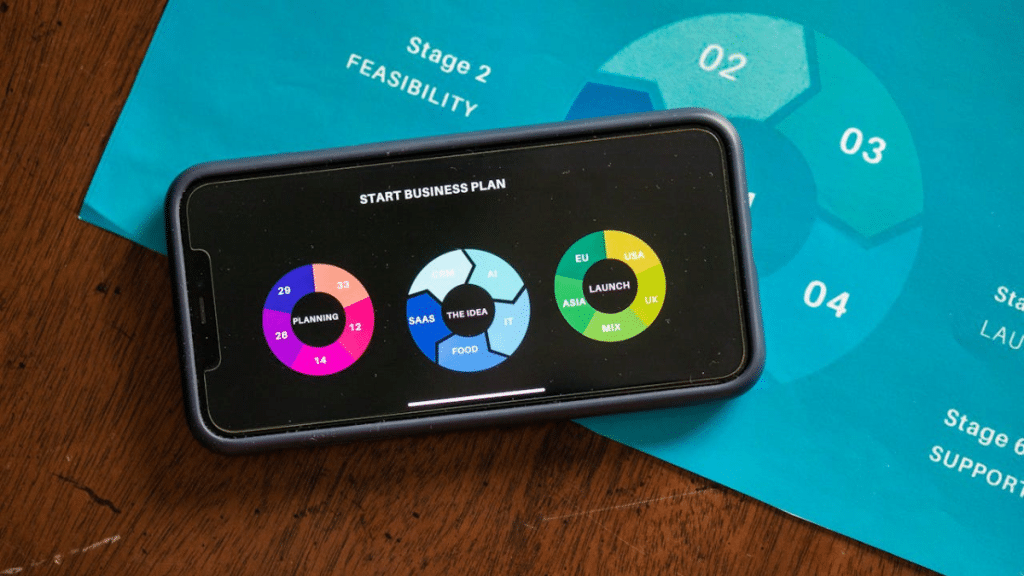Have you been thinking about starting a business but aren’t sure where to begin? Maybe the idea’s been on your mind for months, but something keeps holding you back—time, money, or just not knowing the right steps. The good news? You don’t need a perfect plan or a fancy degree to get started. What you do need is a clear path and the willingness to take things one step at a time.
Building a business that actually lasts isn’t just about launching. It’s about laying the right foundation before you ever make your first sale. Let’s walk through the steps to turn your idea into a real business—one that’s built to stick around.
1. Lay the Groundwork: Understand the Market
Before you build a product, create a logo, or make an Instagram account, take time to understand your space. Who is your ideal customer? What problems are they trying to solve? What are other businesses doing in this space—and what are they missing?
Spend time doing real research. Look at forums, read reviews, ask people questions, and keep track of what you learn. This will help you shape an offer that people actually want, not just something you think they want.
Having a solid understanding of your market isn’t just helpful—it’s essential. It’s also where your entrepreneurial skills start to matter. Skills like curiosity, critical thinking, and decision-making help you gather the right insights and turn them into smart next steps.
2. Validate Your Business Idea
Once you’ve done your research, don’t jump straight into launching. Instead, test your idea in a small way. You could offer a simple version of your service, post a pre-order option, or even create a mock-up and ask for feedback. The goal here isn’t perfection. It’s proof.
You want to know that people are actually willing to pay for what you’re offering. If they’re not, that’s okay—this stage gives you the chance to adjust before you invest too much time or money.
Validation also gives you confidence. Instead of wondering if your idea is good, you’ll know it has potential because you’ve already seen interest.
3. Get Your Finances in Order
Money is a big part of any business, especially in the early days. Before you launch, take some time to think through your startup costs. What tools or supplies do you need? Will you hire help? How long can you go before making a profit?
Create a basic budget—even if it’s just a spreadsheet. Knowing your numbers helps you avoid stress later. It also helps you make better choices about pricing, spending, and planning for growth.
If you’re funding the business yourself, keep track of every dollar. If you’re seeking outside funding, be prepared to explain where the money will go and how it will help the business grow.
4. Choose the Right Business Structure
Next, you’ll need to make things official. That means deciding how your business will be set up legally. Will you operate as a sole proprietor? Start an LLC? Create a partnership?
Each structure has its pros and cons. Your decision affects how you pay taxes, how you handle liability, and how you raise money. It can also impact your business name, registration process, licensing needs, and the level of paperwork involved. If you’re unsure, talk to a small business advisor or accountant who can help you choose what fits best for your situation and long-term goals.
5. Build a Simple, Strong Brand
You don’t need to spend thousands of dollars on branding, but you do need a clear, consistent message. Start with the basics: a name, a logo, a website, and a short description of what you do and who it’s for.
Your brand is more than just how things look. It’s how people feel when they interact with your business. Keep it simple and honest. Let people know what makes you different and why they should care.
Think about how you show up online. Is your website easy to understand? Can people tell what you offer within a few seconds? If not, make some edits. Clear beats clever every time.
6. Develop a Launch Plan
Launching a business doesn’t have to be a huge event, but it does need a plan. Set a launch date that feels realistic. Then work backward from there. What needs to happen before launch day? This could include finishing your website, setting up your online store, or creating a simple email list.
You’ll also want to think about how to build some buzz. You could share behind-the-scenes updates on social media, offer early-bird pricing, or run a small giveaway to build excitement.
The goal is to let people know you’re open for business—and make it easy for them to take action.
7. Focus on Your First Customers
Your early customers matter more than you think. They give you feedback, spread the word, and shape how your business grows. Make their experience great. Respond to questions quickly. Follow up after a sale. Thank them.
It’s tempting to focus on growing fast, but growth without a strong foundation doesn’t last. Take care of the people who support you early on, and they’ll help you grow in the right direction.
Also, keep learning from what works and what doesn’t. Your business will change—and that’s a good thing. Stay flexible and open to feedback.
Starting a business that lasts takes patience, planning, and a willingness to figure things out as you go. It’s not always easy, but it doesn’t have to be overwhelming either. When you break it down into clear steps, it’s easier to move forward with confidence.
You don’t need to have everything perfect from the start. What matters most is that you take action, stay consistent, and keep learning along the way. Whether you’re just thinking about your idea or already putting plans in motion, know this: every great business started somewhere—yours can too.
